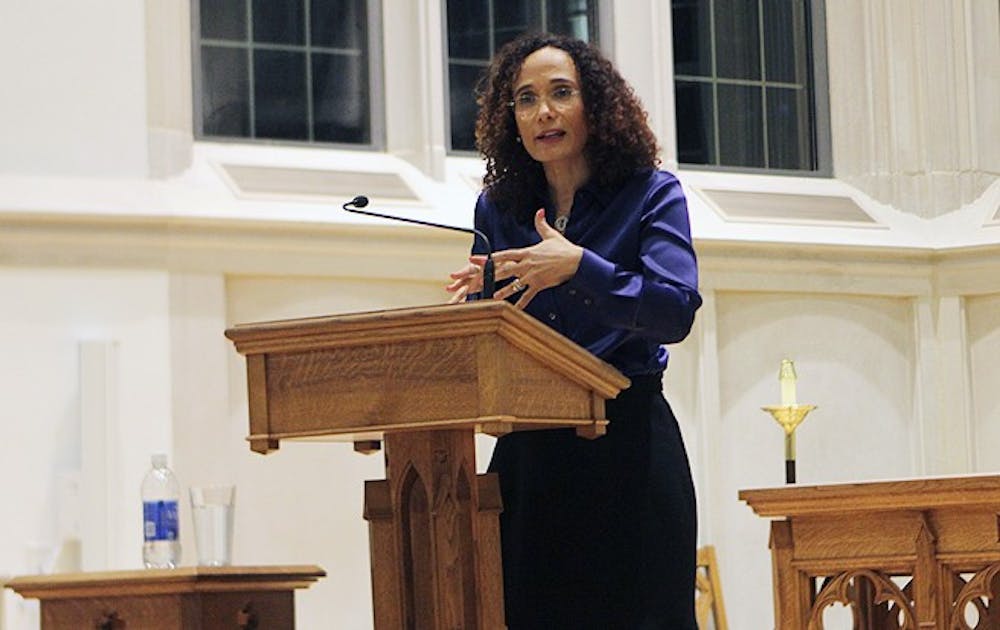Tricia Rose, author and professor of Africana Studies at Brown University, challenged students to get uncomfortable during her Reggie Day keynote speech Thursday.
The Reginaldo Howard Memorial Scholars selected Rose as their speaker for Reggie Day to discuss “what our education is worth,” celebrating the Reggie Scholars and the life of Reginaldo Howard, for whom the scholarships were named. Rose discussed the “inclusive racism” that still exists today, especially in educational institutions.
“We now have visible outcomes of equality but obscured processes,” Rose said. “We’ve moved from excluding people as a mode of discrimination to inclusive discrimination.”
She explained that the system is still discriminatory, but society refuses to admit that and instead includes people from the groups who would be excluded in order to prove that the institution is not discriminatory. Although those few are included, the system remains the same.
“It’s a process by which the fundamental systemic modes of created equality are not equal, and those who experience the brunt are given marginal access as proof that the inequality is not happening,” she added.
Rose noted that even those selected for inclusion remain on the outside and are never fully accepted. The rules are designed for those who are included, and silence on these issues is part of the reward structure for belonging.
She challenged students to develop different ways of thinking and refuse to be silent.
“You have to be uncomfortable to get comfortable,” Rose said. “If education is doing its job, you should be feeling uncomfortable.”
Brandon Hudson, graduate assistant for the Reggie Scholars and Trinity ’06, served on the committee that selected Rose as the speaker.
“Dr. Rose is an intellectual that the group decided would be someone who could speak to the issues, specifically what are some of the inequities that still exist in higher education,” he said.
A part of the Reggie Scholar community since 2003, Hudson attended the first Reggie Day in 2004.
“I was here during a phase in which this program was being transformed, and students were starting to think abut what it meant to be leaders on campus and how to engage the broader campus community,” he said. “For the Reggie community, [Reggie Day] is a way for us to honor Reggie’s legacy and instills a deeper sense of identity of the group.”
Junior and Reggie Scholar Niara Wright said that the issue of education is very relevant to many African Americans.
“Dr. Rose’s talk made us question why exactly you should be here and how to continue our African American culture by not being objectified but instead embodying the entire culture,” Wright said.
When concluding her speech, Rose encouraged students to make the most of their education by always fighting for their values.
“The price is always going to be there to ask you to go from visibility to vision,” she said. “This is an incredible educational moment for you—develop an interior sense of self and have the courage to fight for people to have the same opportunities.”
Get The Chronicle straight to your inbox
Sign up for our weekly newsletter. Cancel at any time.

